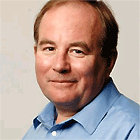Editor's note: The articles just keep coming and coming, lambasting the Virginia parishes that have decided to secede from the Episcopal Church and affiliate with the Anglican Church of Nigeria. Here is the latest – posted on Slate.
Please note: This title, "Good Riddance," is the author's alone, and does not reflect the view of The Episcopal Majority.Good RiddanceThe Episcopal split promises a stronger churchBy Astrid Storm
Posted Friday, Dec. 22, 2006, at 11:55 AM ET
As a theological liberal, I take a rather dim view of the doctrine of providence. Still, I have to say that there was something vaguely providential about the way events unfolded in the Episcopal Church this past week.
Last Sunday, eight Episcopal churches in the Diocese of Virginia voted to
break away from the U.S. Episcopal Church. Many of them are now affiliated with the Convocation of Anglicans in North America, a network of churches in the global
Anglican Communion under the oversight of the archbishop of Nigeria,
Peter Akinola. The vote was the result of increasing frustration with the liberal direction the Episcopal Church has taken over the past 30 years, starting for many with the ordination of women in 1976 and culminating in the consecration of the first openly gay bishop in 2003.
The possibility of a breakaway, particularly one involving foreign bishops, has been taking up a lot of the Episcopal Church's energy over the last three years, because it could have significant consequences for its polity, finances, and even day-to-day parish life. Yet some Episcopalians, like me, are relieved that it has finally happened—and are especially relieved at how it happened. In fact, it seems to me that this couldn't have happened at a better time, with better people, or in a better way. The Episcopal Church may even be stronger for it in the long run.
Most significant, perhaps, is these churches' decision to align with controversial Archbishop Akinola—someone whom even many conservatives in the church have serious qualms about. He's called homosexuality a "satanic attack" on the church and considers gay-affirming churches to be a "cancerous lump" in the body of Christ. He has endorsed the implementation of anti-gay legislation in his country that would ban homosexuals from having relationships and practically eliminate their right to free speech, all at risk of imprisonment—proposals that the Gay and Lesbian Humanist Association
considers among the most oppressive in the world. Also noteworthy is his propensity for making stupendously insensitive statements—like, "I cannot think of how a man in his senses would be having a sexual relationship with another man. Even in the world of animals, dogs, cows, lions, we don't hear of such things." Elsewhere, he compared homosexuality and lesbianism to bestiality. He also made an earlier statement this year that was tied to ensuing violence against Muslims in his community; while American mega-pastor
Rick Warren was deftly
defending Akinola, people in Nigeria, including another bishop, were decrying it.
Try as some have, no excuse—cultural factors, tribal politics—mitigates his venomous statements, and aligning with what basically amounts to the Jerry Falwell of the Anglican Communion exposes just how visceral and unexamined these anti-gay feelings must be for many of these people in these Virginia parishes. Even before they departed, these parishes were very much on the fringe of the wider Episcopal Church.
The timing of this decision is also important. It came at a time of relative calm and good will in the Episcopal Church, and many people have questioned the reasons—or lack thereof—behind it. The Rev. William L. Sachs, director of the Center for Reconciliation and Mission at St. Stephen's Episcopal Church in Richmond, Va., told me that "since 2003 the Episcopal Church has worked very hard at listening to the Anglican Communion and trying to honor the
Windsor Report and, in fact, there has been a moratorium on the consecration of gay bishops. So, what have they got to complain about?" The election of a
female presiding bishop with liberal views on gays and lesbians is the closest he could think of to a proximate cause for last Sunday's decision, but considering Presiding Bishop Katharine Jefferts Schori's recent efforts to accommodate those who don't share her more liberal viewpoint on homosexuality, and considering many people's support for women clergy in these breakaway churches, even that seems an unconvincing provocation.
It's also worth pointing out that this decision came on the tail end of a bad week for conservatives in England. A few members of an influential conservative organization unilaterally
presented a very un-Anglican proposal to the archbishop of Canterbury in which they brazenly
petitioned to bypass bishops they don't agree with and to choose where their money goes—not acceptable practices in Anglicanism. A number of confused and angry replies—some of them from people who belonged to the group that presented the proposal but hadn't even seen it—poured in. Closer to home, that debacle in England may have prompted Kenneth Kearon, secretary general of the Anglican Communion, to issue a statement clarifying that the Archbishop of Canterbury had not indicated any support for the establishment of CANA, the organization to which these Virginia churches now belong.
The way these churches went about severing themselves from the U.S. Episcopal Church is also interesting. A church voting to secede from the larger church is not accepted practice in the Episcopal Church, and neither is seeking out another bishop. Elaborating on one of Schori's earlier statements, Bob Williams, the director of communication at the Episcopal Church Center in New York, said, "Parishioners and clergy leave the church; churches don't. … One bishop is not supposed to intrude upon another's jurisdiction. This has been true since the Council of Nicaea." Strangely enough, Akinola himself said the same to the Church of Nigeria News back in 2001: "You don't just jump from your diocese to begin to do whatever you like in another man's diocese. That is not done in our Anglican tradition."
Which is all to say that, in doing what they did, when they did it, and with whom, these churches appear disorganized, impatient, and uncouth. To quote William James, the ideal pairings of "fervor with measure, passion with correctness" seemed distinctly lacking in their actions, and it's very hard to imagine many other churches following their lead. In fact, Bill Sachs assured me that Virginia Episcopalians are distancing themselves, and he surmises that splinter parishes will amount to "not more than five percent" of the U.S. church—probably far less. If I had to bet on it, I'd even say Archbishop Akinola's power among Episcopalians in this country is quickly waning as of last Sunday.
It has been said that measure and manners are the glue that binds the Anglican Communion together. If so, then it seems these churches are coming unglued; as for the rest of us, I think we'll be sticking around just fine, thank you very much.
Astrid Storm, an Episcopal priest, is the vicar of St. Nicholas-on-the-Hudson. She lives in New York City.
Copyright 2006 Washingtonpost.Newsweek Interactive Co. LLC
 Joan R. Gunderson has published her research, How "Historic" Are Truro Church and The Falls Church? on her website. Dr. Gundersen has a Ph.D. in American history from the University of Notre Dame. She has published extensively on the history of the church in Virginia, and is currently collaborating with Edward Bond on a new history of the Diocese of Virginia to be published by the Diocese of Virginia and the Virginia Magazine of History and Biography. Dr. Gundersen is also President of Progressive Episcopalians of Pittsburgh and a founding member of Via Media USA.
Joan R. Gunderson has published her research, How "Historic" Are Truro Church and The Falls Church? on her website. Dr. Gundersen has a Ph.D. in American history from the University of Notre Dame. She has published extensively on the history of the church in Virginia, and is currently collaborating with Edward Bond on a new history of the Diocese of Virginia to be published by the Diocese of Virginia and the Virginia Magazine of History and Biography. Dr. Gundersen is also President of Progressive Episcopalians of Pittsburgh and a founding member of Via Media USA.




